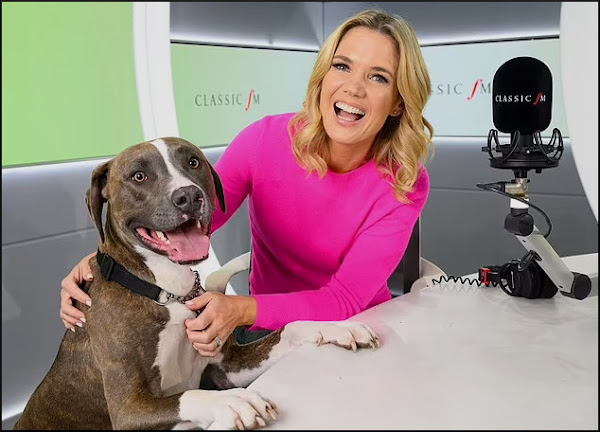There is no mass market for classical music
Classical industry executives should make it their New Year's resolution to finally understand that there is no mass market for classical music. For two decades classical music has been chasing a non-existent mass market. The latest manifestation of this misguided thinking is the reinvention in the UK of BBC Radio 3 as a clone of Classic FM by the network's new Controller Sam Jackson, who worked for Classic FM for five years culminating in the post of 'Senior Managing Editor, Classic FM, Smooth and Gold'. Forget whether you love the new BBC Radio Classic 3 FM, or like me you loathe it with a vengeance.
Let's instead look at the facts.
 Header image comes from Daily Mail and second image from BBC Radio 3.
Header image comes from Daily Mail and second image from BBC Radio 3.
Industry strategies are based on the canard that Classic FM has a 'big' audience, therefore there must be a 'big' audience for classical music. Classic FM's audience peaked at 5 million but the station has failed to add listeners. In fact in May 2023 the station had its smallest quarterly audience since accurate figures became available 23 years ago. Despite this, BBC Radio 3 under its new Controller has adopted a futile strategy of unashamedly targeting exactly the same shrinking market.
This mistake stems from a simple misunderstanding of the classical music market. The classical market is not a single large homogeneous entity which responds to 'one size fits all' marketing. Instead the classical market is a heterogeneous and highly fissile conglomeration of small overlapping niches - opera, chamber music, early music, contemporary music, orchestral music, etc. etc.
One of these niches is the 'classic light' segment which has been ably exploited in the past by Classic FM. Yes, it is one of the larger, if not the largest niche. But it is also a finite niche, and, as recent Classic FM audience figures prove, that niche is highly inelastic. This means that beyond a certain point the 'classical light' segment does not respond to increased promotion, which in turn means that BBC Radio Classic 3 FM is doomed to fail. The station may show short to medium term audience gains, but these will be at the expense of Classic FM. The classical music market will not expand, but the egos of the BBC executives will every time the RAJAR audience figures are published.
For years BBC Radio 3 has tried without success to differentiate itself from Classic FM by plugging that it is the only classical station with 'live' performances - have you ever heard 'dead' performances? - and forcing its presenters to plug the BBC New Generation Artists Scheme every thirty seconds. But now these ineffectual attempts at differentiation have been abandoned in the pursuit of the 'if you can't beat Classic FM join it' strategy, which can only result in a zero sum game as the two stations trade listeners . Which is both sad and wrong, because there is a viable alternative.
The 'classical light' segments has become an obsession in the industry because of its perceived size. But when all the other niches plus the 'classical light' market are added together this becomes a big target market with real growth opportunities. There is a place for 'classical light' in 'drive time' segments, and this audience can be retained. But intelligently curated and presented specialist content at other times in the day targeted at all those other niches - opera, chamber music, early music, contemporary music, orchestral music - provides a far more viable alternative strategy that will not result to in a fight to the death with Classic FM . Instead, what BBC Radio 3 is currently doing is betting the network's future on prising listeners away from Classic FM, and the cost of this bet is abandoning all integrity, authority, and audience outside the 'classical light' market.
If any proof is needed of the power of the niche it is provided by David Munrow's BBC Pied Piper early music programme which ran for 655 prime time episodes over five years without resorting to chopping up Bach's Mass in B minor into easily digested daily morsels interspersed with commercials by another name, as has happened this week on BBC Radio Classic 3 FM.
 Header image comes from Daily Mail and second image from BBC Radio 3.
Header image comes from Daily Mail and second image from BBC Radio 3.









Comments